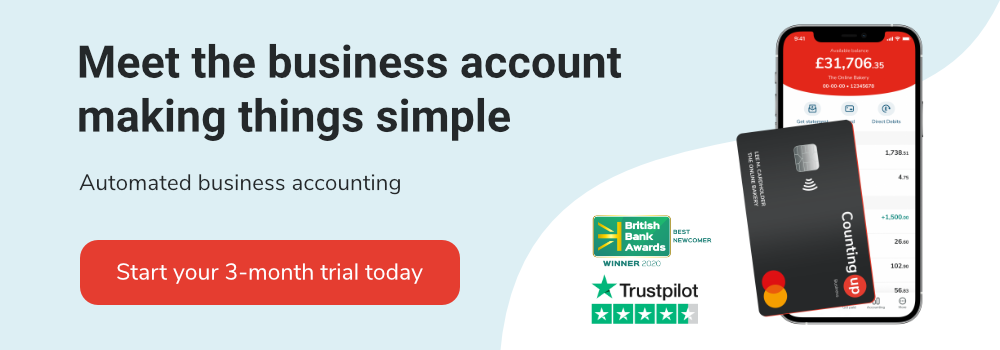How long does a business need to keep invoices?
Table of Contents
You must send invoices in order to get paid. Once your customers have paid, you still need to keep a copy for a certain amount of time. According to government regulations, you need to keep business records for a minimum of five years after January 31st of that financial year.
For example, if you submit your records by January 31st 2022, you’ll need to keep them safe until January 31st 2027.
In this article, we’re going to look at:
- How to keep records
- How to store your invoices
- What happens if you don’t keep your invoices
- Managing your invoices
How to keep records
In line with HMRC guidelines, businesses with an income of £150,000 or less are able to record their business income and expenses in one of two ways: traditional accounting or cash-based accounting. It is also worth remembering that the tax year runs from the 1st of April to the 31st of March.
Cash-based accounting
This method is only available to businesses with an income of up to £150,000 a year. Far more simple than traditional accounting, you only need to record when money either enters or leaves your business and the amount of each transaction.
If you sent an invoice on March 25th 2021 but didn’t receive payment until April 10th 2021, you’d file the payment under the 2021-2022 tax year.
Traditional accounting
This is the more thorough method and depends on when you send and receive invoices, instead of when you sent or received payment. If clients frequently take a while to pay you, it’s worth knowing how to handle late-paying customers.
For example, if you sent an invoice on the 29th of March 2021 but didn’t receive the payment until the 7th of April 2021, you would still record the record for the 2020-2021 tax year.
How to store your invoices
There are a couple of ways you can keep your records safe, but each method carries its own pros and cons.
Physical copies
The more traditional method, keeping your records as hard paper copies means you’ll have access even if your digital systems fail. On the other hand, unless you keep them well maintained and in order, it can be very easy to lose or misplace them.
Digital copies
You could also store your invoices in a digital format. This makes keeping everything filed away simple, and lets you find a specific document with ease. If you decide to use a digital method, there are several options to keep your records safe.
On the cloud
Storing your records on a cloud service can provide instant access from anywhere with an internet connection. A solution like Countingup automatically stores and organises invoices so you can find them easily.
On your computer
Perhaps the easiest way to keep your invoices secure is to save them on your personal or work computer, although you are more vulnerable by doing this. Computers sometimes fail without warning and are susceptible to accidental damage (like spilt drinks), which can stop you from recovering your saved files.
On an external storage device (USB stick/hard drive)
You can also save all your essential records on an external storage device. This has the benefit of allowing access from any compatible computer or laptop, and keeping your documents safe if your primary device suddenly breaks.
You still need to ensure that the external storage is kept secure; otherwise, any saved files can get damaged or lost.
Despite how you choose to keep your records safe, it’s usually best to have backup copies in case something goes wrong. The last thing you want is to have your records requested and be unable to provide them.
What happens if you don’t keep your invoices
As a self-employed business owner, you need your records for yearly Self Assessment. If your documents are lost, stolen or damaged, you must still try to submit figures as accurately as possible.
You’ll also have to alert HMRC to whether you’re submitting estimated figures (your best guess when actual figures are unavailable) or provisional figures (a temporary estimate until you recover your actual figures –– which you must still submit).
Penalties
If HMRC feels your records are inadequate, you won’t be asked to pay any penalties straight away. Instead, you will receive certain instructions and a specific time frame to get everything in order.
Failing to meet these requirements will result in various penalties depending on your behaviour and HMRC’s potential lost revenue (PLR).
- 10%-30% of PLR for non-deliberate behaviour
- 20%-70% of PLR for deliberate not concealed behaviour
- 30%-100% of PLR for deliberate and concealed behaviour
If you submit incorrect information, that can be classed as a misstatement in accounting. This comes with its own sets of consequences. With so many potentially harmful outcomes, it’s crucial you keep all your records correct, secure, and in order.
Managing your invoices and Countingup
Keeping and maintaining your business records can be tricky if you don’t have an accountant or accounting software to help you. That’s why thousands of business owners use the Countingup app to make their financial admin easier.
Countingup is the business current account with built-in accounting software that allows you to manage all your financial data in one place. With features like invoicing on the go, receipt capture tools and cash flow insights, you can confidently keep on top of your business finances wherever you are.
With the Countingup app, you can easily keep your records accurate and up to date and share your bookkeeping data with your accountant in seconds. Seamless, simple, and straightforward!
Find out more here and start your 3 month free trial today.
Receive actionable business tips weekly
By submitting this form, you confirm that you are 16 years of age or over and that you have read and agree to our Privacy Policy. You can unsubscribe at any time.




